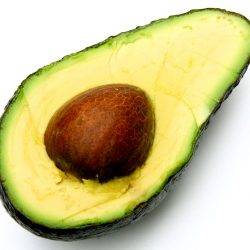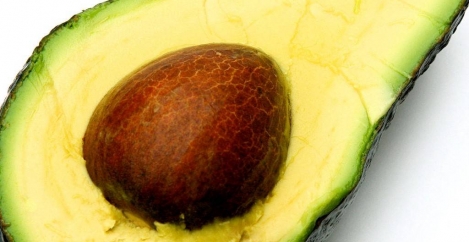May 15, 2020
What the humble avocado can teach us about why we will always work in offices
 From the archive. Originally published in 2013. People have been talking about the death of the office for at least a quarter of a century. Leaving aside the often misleading conflation of flexible working with homeworking that is often involved, the underlying premise of such talk has been the same for all of that time. The main argument is, and always was, that there is an alternative to the tedium, aggravation and expense of travelling to an office solely to work inside its hermetically sealed and fluorescent-lit, blue-carpeted interior alongside people who can drive you spare, before you schlep home again.
From the archive. Originally published in 2013. People have been talking about the death of the office for at least a quarter of a century. Leaving aside the often misleading conflation of flexible working with homeworking that is often involved, the underlying premise of such talk has been the same for all of that time. The main argument is, and always was, that there is an alternative to the tedium, aggravation and expense of travelling to an office solely to work inside its hermetically sealed and fluorescent-lit, blue-carpeted interior alongside people who can drive you spare, before you schlep home again.
The problem with the argument is that, in spite of its evident drawbacks, office life maintains an attraction for both employers and employees and there will always be an upper limit on how long people want to spend home alone. Things are changing but the death of offices remains the enticing myth it has remained for decades.
As we’ve known for at least a quarter of a century, there is no absolute need for us to go to work at all. Theoretically we could just do away with offices completely if we wanted to. But as we have seen, the fact we have evolved technology to the point where we could forget about bricks and mortar, doesn’t necessarily mean we will. Not only are there practical reasons for offices to continue to exist, there are emotive ones too.
Mankind has a habit of preserving things that should no longer exist, and a great example is provided by the humble avocado. Like many fruits, the avocado evolved to have its seeds dispersed via the digestive tracts of animals. And the reason why the avocado’s seed is so much larger than many others is because the animals it used to perform this task were the giant mammals that roamed South America thousands of years ago including gigantic ground sloths the size of a truck and huge, elephant-like beasts called gomphotheres.
According to the evolutionary biologist Dan Janzen, after these creatures died out several thousand years ago the avocado clung on for a while waiting for an animal that would never come, until early man developed a taste for the fruit and began cultivating it. It survived because it served a practical purpose for humans and was to their taste as did similar supposed evolutionary anachronisms such as the papaya and the ginkgo tree.
There are plenty of vested interests lined up to paint the office as similarly anachronistic, many of them from technology and communications companies. But when companies such as Virgin Media describe the alternatives to office life, they tend to do so in unfeasibly idyllic ways as in this video.
It all seems lovely, until you stop to think about how realistic it all is. Will future workers really all live in beach houses and Cotswold farmhouses? Will they drive on empty roads? Will their colleagues from around the world dutifully sit around in videoconferencing suites until they have finished talking to their fathers? And will meetings conclude in the time it takes to poach an egg?
Even with its undeniable drawbacks and the siren call of the literally fantastic alternative of homeworking, the office still does many things better than its alternatives. Not only that, we still love it for emotive and humane reasons; for the way it structures our time, offers us the company (and love) of others, gives us a sense of identity and a place to go that is not the place we call home.














January 22, 2014 @ 1:46 pm
With march of technology homeworking maybe an opportunity for work for an increasing number of workstyles but as usual there is no one size fits, and it is at the agreement of both the individual and the organisation. There are benefits and issues both for the individual and the business to consider in their own particularly circumstances.
Home for some is a practical worksetting as a base or as an occassional, even permanent workplace. However people are by nature social animals and so the office and third places will be part of the workplace mix.
January 27, 2014 @ 2:45 pm
Wow – whole lot of preconceptions and assumptions in that video. Why did the woman presenting feel the need to lie about where she was? Effort still measured in time – ie days “off” or “on”. Work/life balance seems to be presented as trying to be two people (dutiful daughter/committed worker) at once.